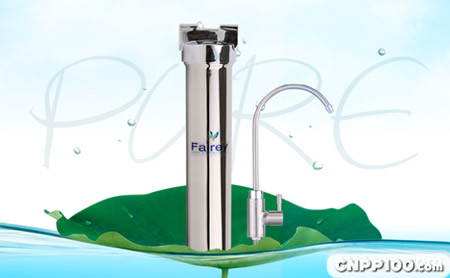
Doulton, originated in the United Kingdom in 1815, is the world's leading manufacturer of water filtration products/water purification equipment
"Dalton" originated in Limbaijun 200 years ago, and this extraordinary experience has been dotted with many famous people, such as Queen Victoria, biologist Louis Pasteur, monarch Edward VII and so on. From a small factory in the Tyers River, Royal Dalton has become one of the most trusted brands in the world. John Doulton founded his first porcelain factory in 1815 on the banks of the River Thames in London, England. It mainly manufactures ceramic tableware, portraits and containers. Influenced by the unrelenting Industrial Revolution, Dalton began to develop industrial porcelain technology. As early as 1827, Dalton began to use diatom porcelain materials to manufacture water pipelines and filtration products.
In 1835, Queen Victoria, recognising the health risks of water contamination, commissioned Dalton to design a water filter for the royal family. The result was a direct-leak filter made of stone magnet sculpture (there was no running water at the time). Dalton created the world's first ceramic purifying water tank, bringing clean and hygienic healthy water to the royal family, and was awarded the royal title by the queen.
At the 1862 Kensington International Exhibition, Dalton was awarded the Queen Victoria's Royal Epaulette in recognition of his contribution to society.
Henry Doulton, John Dalton's eldest son, Henry Dalton, introduced activated carbon in 1862. It was the beginning of the Industrial Revolution and pollution increased from bacteria to organic chemicals. Activated carbon is particularly effective in filtering out increasing chemical contamination.
Dalton continued to work hard to develop diatom porcelain filtration technology, and in 1906, he launched the diatom porcelain filter cylinder (nickname: sand filter cylinder), which was lightweight and reliable, and was quickly accepted by hospitals, laboratories and other professional institutions. In the same year, the French biologist Louis Pasteur succeeded in discovering the existence of bacteria, their amazing ability to reproduce, and the various harms they can do to the human body. Dalton successfully uses diatoms as filter material to make ultra-microfilament filter rods to absolutely filter all pathogenic bacteria, Dalton diatom fossil shell is equipped with silver element, which will release a small amount of positive ions in the water, neutralize the protein catalyst in the bacteria and prevent bacteria from multiplying. On average, there are more than 80,000 microfilament pores on the diatom shell, and the efficiency of 0.22μ (1/100,000 inch) is 98%, which greatly improves people's health.
The core of the Dalton filter is a filter rod made of diatom porcelain. Diatoms are a class of single-celled seaweeds that have lived in the oceans for 150 million years. It has been deposited at the bottom of the lake for tens of millions of years and has become a natural fossil. The characteristics of diatoms are that there are thousands of microfilament holes on the microbiological shell of diatoms. Unlike the general plastic filters on the market, diatom porcelain does not contain chemical components. The production is processed by high temperature, which is safe and healthy. At that time, the British military department, royal enterprises, hospitals, laboratories and world-famous families all unanimously adopted the British royal "Dalton" diatom porcelain water filtration products.
In 1901, King Edward VII knighted Henry Dalton, and in 1902 Edward VII conferred the title of "Royal" on the Dalton brand.
USING ADVANCED CERAMIC TECHNOLOGY, THE OUTER TANK IS MADE OF DIATOMACEOUS KIESELGUHR, AND THE DIAMETER OF THE FILTER MICROPORES IS KEPT BELOW 0.90 MICRONS, AND THE ABSOLUTE FILTRATION RATIO IS 99.999%. The surface of the filter cartridge is hard, and it is used repeatedly after scrubbing. Economical and durable. Since then, Dalton has continued to develop water filtration equipment. With the modernization of society, the use and quantity of chemical agents have surged, and industry often discharges chemical and heavy metal waste into rivers, while agricultural pesticides and insecticides seep into underground water sources from the soil, seriously polluting drinking water. "Dalton" also adds advanced extruded carbon concentrate and high-density Engelkard ATS heavy metal isolator to the filter element to isolate harmful chemicals and heavy metals. Provide natural and pure drinking water for human beings.
Today, Royal Dalton is present in more than 150 countries around the world. Provide the world with clean, hygienic drinking water. If John Dalton were still around, he would have been overjoyed to see that his products are still serving the world today. The Royal Dalton Museum was established in 1996 in Stalford, and visitors can take a stroll through the original factory building to experience this extraordinary experience.












